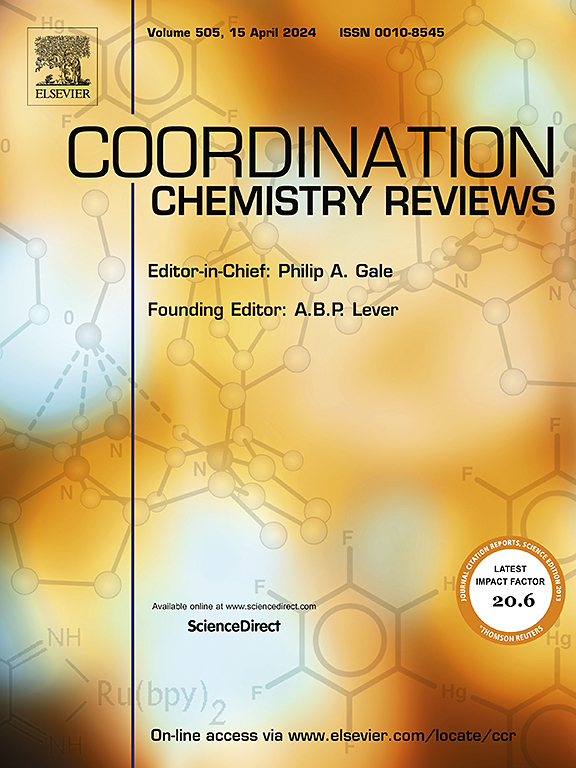Recent progress on modification strategies of both metal zinc anode and manganese dioxide cathode materials for high-performance aqueous zinc-ion batteries
IF 23.5
1区 化学
Q1 CHEMISTRY, INORGANIC & NUCLEAR
引用次数: 0
Abstract
Aqueous zinc-ion batteries (AZIBs) are of the most potential energy storage systems for large-scale applications due to their low redox potential (−0.76 V vs standard hydrogen electrode, SHE), high theoretical specific capacity (820 mA h g−1 and 5855 mA h cm−3), safety, low toxicity and price, eco-friendliness and abundant reserves. In spite of many hurdles before their practical application, great progress has been achieved on high-performance AZIBs. In this review, the main issues and their root causes faced by metal zinc anode and manganese dioxide cathode of AZIBs are analyzed, and the recent research progress on the modification strategies and their working mechanisms of both metal zinc anode and manganese dioxide cathode are focused on, and their challenges and future development prospects are also proposed, which provide a perspective for high-performance AZIBs, and further promote their practical process.
高性能锌离子水电池金属锌阳极和二氧化锰阴极材料改性策略的最新进展
锌离子水电池(AZIBs)具有氧化还原电位低(-0.76 V,相对于标准氢电极,SHE)、理论比容量高(820 mA h g-1 和 5855 mA h cm-3)、安全、低毒、低价、生态友好和储量丰富等特点,是最有潜力大规模应用的储能系统。尽管在实际应用之前还存在许多障碍,但高性能 AZIBs 的研究已取得了重大进展。本综述分析了金属锌阳极和二氧化锰阴极 AZIBs 所面临的主要问题及其根本原因,重点介绍了金属锌阳极和二氧化锰阴极的改性策略及其工作机理的最新研究进展,并提出了其面临的挑战和未来的发展前景,为高性能 AZIBs 的发展提供了一个视角,进一步推动了其实用化进程。
本文章由计算机程序翻译,如有差异,请以英文原文为准。
求助全文
约1分钟内获得全文
求助全文
来源期刊

Coordination Chemistry Reviews
化学-无机化学与核化学
CiteScore
34.30
自引率
5.30%
发文量
457
审稿时长
54 days
期刊介绍:
Coordination Chemistry Reviews offers rapid publication of review articles on current and significant topics in coordination chemistry, encompassing organometallic, supramolecular, theoretical, and bioinorganic chemistry. It also covers catalysis, materials chemistry, and metal-organic frameworks from a coordination chemistry perspective. Reviews summarize recent developments or discuss specific techniques, welcoming contributions from both established and emerging researchers.
The journal releases special issues on timely subjects, including those featuring contributions from specific regions or conferences. Occasional full-length book articles are also featured. Additionally, special volumes cover annual reviews of main group chemistry, transition metal group chemistry, and organometallic chemistry. These comprehensive reviews are vital resources for those engaged in coordination chemistry, further establishing Coordination Chemistry Reviews as a hub for insightful surveys in inorganic and physical inorganic chemistry.
 求助内容:
求助内容: 应助结果提醒方式:
应助结果提醒方式:


